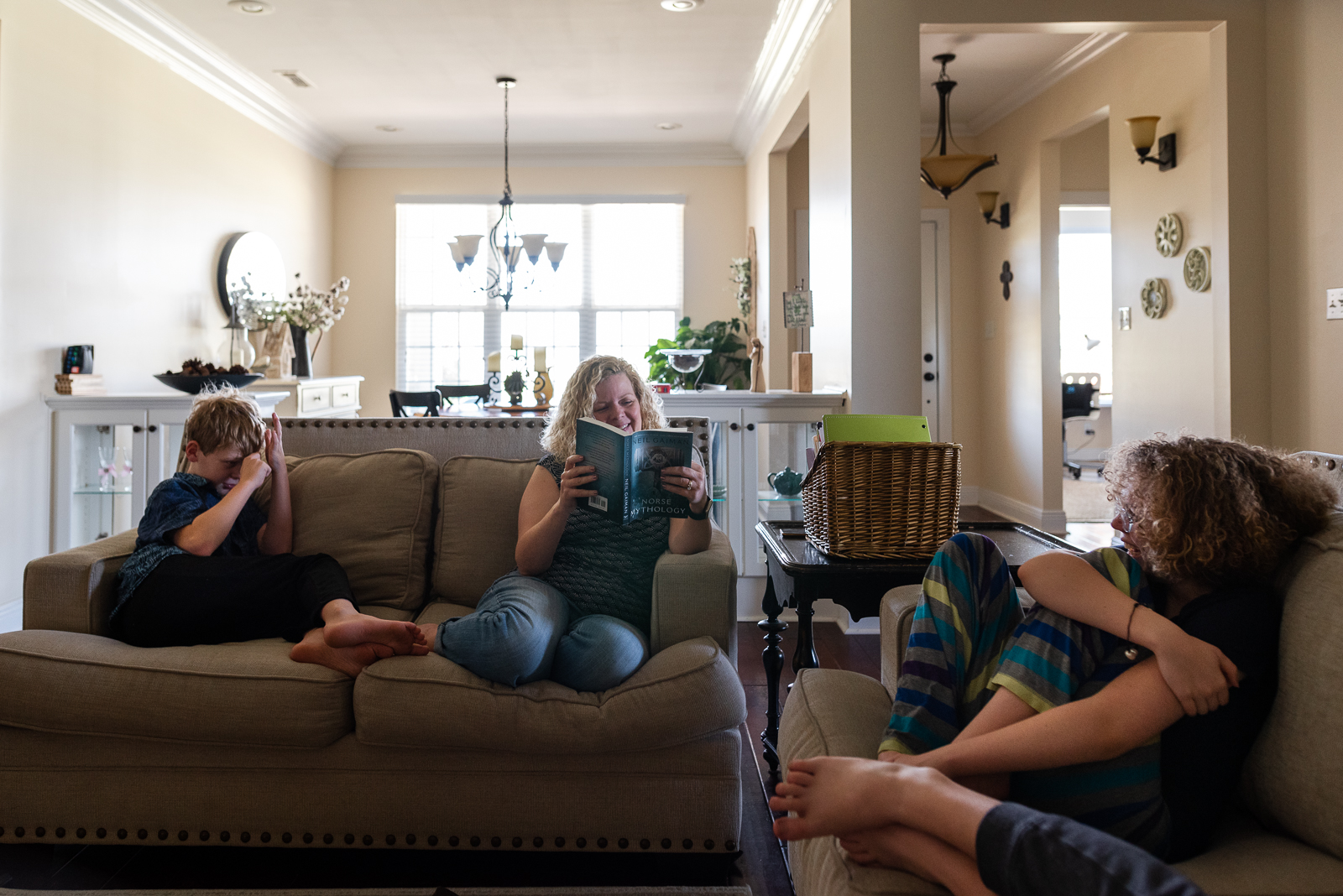
In this episode of the Homeschool Better Together podcast, I’m giving you a bit of a pep talk. I’ve been there—staring at the clock, realizing the day is slipping away and thinking, “If I can’t follow my perfect plan, I might as well do nothing.” Sound familiar? Well, I discovered that my problem wasn’t laziness—it was perfectionism. And that perfectionism was sabotaging my ability to be consistent with homeschooling.
I talk about how embracing imperfection helped me break through the inconsistency in our homeschool. I realized that half-hearted school days and not following the plan exactly were still valuable. The key is to show up and do something, even if it’s not perfect. I also share how creating a “minimum viable day” helped me focus on the most important subjects and stay consistent, even on the craziest days.
If you’re feeling stuck because things aren’t going perfectly, I encourage you to give yourself some grace. Consistency over perfection is what will make a huge difference in your homeschool.
Links and Resources From Today’s Show
Key Ideas About Why Perfectionism is Sabotaging Your Homeschool
- Perfectionism can sabotage your homeschool consistency.
- Even imperfect school days can be effective.
- The “minimum viable day” approach helps focus on essential subjects.
- Consistency, not perfection, builds long-term homeschool success.
Embracing Imperfection in Your Homeschool: The Key to Consistency
Today’s post might feel more like a pep talk than a list of tips, but sometimes we just need that boost to keep going. If you’re struggling with consistency in your homeschool and beating yourself up for not being “perfect,” you’re not alone, and it’s okay.
Let me share something that happened to me when I was starting out. Back in the early days of homeschooling, I’d often look up at 11 a.m. and realize we hadn’t even started our school day. My first thought? There’s no way I can get in a full day now, so I might as well not even try. Sound familiar?
The Perfectionism Trap
What I didn’t realize at the time was that I wasn’t being lazy. The real issue? Perfectionism. I had this idea that if our homeschool day couldn’t go exactly as planned, then it wasn’t worth doing at all. I thought, If I can’t do it perfectly, then I’m just going to start again tomorrow. This mindset was completely sabotaging our consistency.
Eventually, I came to understand that half-hearted or “imperfect” school days are still valuable. Just because we didn’t get to every subject didn’t mean we weren’t learning. I call it the minimum viable day, and it was a game-changer for us.
The Power of a Minimum Viable Day
What is a minimum viable day? It’s the bare minimum you need to feel like you’ve accomplished something in your homeschool. For us, it meant focusing on the most important subjects and letting go of the idea that we had to do everything. If we had a doctor’s appointment or I wasted too much time scrolling on my phone (hey, it happens!), I could still fit in a few key lessons and feel good about our day.
This shift allowed us to be consistent, even if every day wasn’t “perfect.” And you know what? Being consistent, even with imperfect days, made all the difference.
How to Overcome Inconsistency
Once I let go of perfectionism, I was able to address other issues that were causing inconsistency in our homeschool. Maybe I was staying up too late at night, or I wasn’t preparing for the next day. Simple changes like getting up just 10 minutes before the kids made a huge difference in getting our day started smoothly.
I also found that implementing a daily rhythm, like morning time, helped set the tone for the day. Knowing that we were going to gather together each morning gave us structure and consistency, which made it easier to roll into the rest of our day.

Embrace Imperfection and Keep Going
The most important thing I’ve learned is that school doesn’t have to go exactly as planned for it to be effective. There are always going to be days that aren’t perfect. The key is to keep showing up, even on those less-than-ideal days. It’s better to do a little something each day than to aim for perfection and end up doing nothing.
If you’re struggling with consistency, I challenge you to embrace imperfection. Give it a try for a few weeks and see if allowing yourself to have imperfect days doesn’t actually improve your homeschool overall.
Final Thoughts
Consistency is the backbone of a successful homeschool, but perfectionism can stand in the way. By letting go of the need to do everything perfectly, you can create a rhythm that works for your family and helps you stay consistent, even when life gets messy.
If you’d like more support with this, I invite you to join our free homeschool community where you can connect with other moms who are working on the same thing. And if you need extra help with consistency, check out our Homeschool Consistency Boot Camp! We’d love to have you join us.
Leave a Rating or Review
Doing so helps me get the word out about the podcast. iTunes bases their search results on positive ratings, so it really is a blessing — and it’s easy!
- Click on this link to go to the podcast main page.
- Click on Listen on Apple Podcasts under the podcast name.
- Once your iTunes has launched and you are on the podcast page, click on Ratings and Review under the podcast name. There you can leave either or both!
- Juggling Big Life Changes and Homeschool - June 17, 2025
- Which Homeschool Schedule Actually Works for You? - June 3, 2025
- How to Keep Homeschool Consistent When Life Isn’t - May 20, 2025
